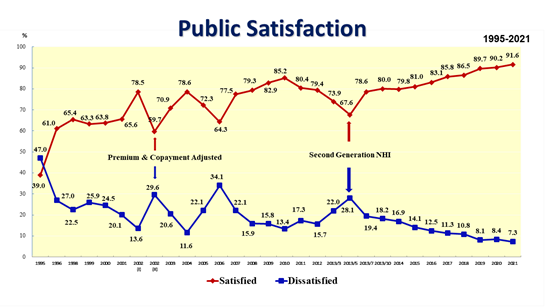Achieving Universal Health Coverage is a foundation of the health-related goals of the UN Sustainable Development Goals, and the goal ensures that each individual has access to basic medical care. Taiwan's National Health Insurance (NHI) system was implemented since 1995, with its goal of providing equal rights as well as accessible and affordable medical care for each eligible resident. According to the 2019 edition of CEOWORLD magazine (the world's leading business magazine) Health Care Index, which ranks 89 countries according to factors that contribute to overall health, Taiwan has the best health care systems in the world. Furthermore, according to Numbeo's Health Care Index, Taiwan has been ranked as the best among the 93 countries on the list, which indicates the overall quality of the healthcare system in Taiwan.
Taiwan's National Health Insurance adopted the single-payer system that is widely applicable and optimizes the resources. Compared to the healthcare system in other countries, the NHI features its lower administrative expenditures as well as its fairness and consistency. However, the NHI has faced many difficulties, and the public satisfaction with the system was below 40% in the early days. Today, public satisfaction is over 80%, making it clear that the system enjoys a high level of public approval. By the end of 2021, the general public satisfaction towards the NHI even peaked at 91.6%. Due to the implementation of NHI, comprehensive medical protection can be better provided to the needs of disadvantaged people.


